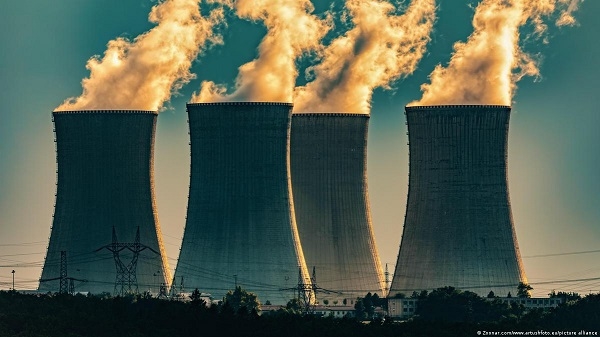Strengthening Nuclear Security: U.S. Donates Advanced Detection Equipment to Ghana
The United States has made a significant contribution to Ghana’s nuclear security efforts by donating advanced radiation detection equipment to the Ghana Nuclear Regulatory Authority (NRA). This move is aimed at enhancing the country’s capabilities in detecting, measuring, and identifying nuclear and radioactive materials.
The donated equipment, an HM-5 identiFINDER, is valued at GH¢270,000 (approximately US$26,000). It was presented during a brief ceremony at the NRA offices in Accra by Mr. Rolf Olson, the U.S. Chargé d’Affaires, a.i. The event marked a key milestone in the ongoing collaboration between the two nations to promote peaceful nuclear development and ensure compliance with international safety and security standards set by the International Atomic Energy Agency (IAEA).
Enhancing Capabilities for Nuclear Safeguards
The NRA, which is responsible for regulating and controlling the peaceful use of nuclear science and technology in Ghana, will utilize this equipment to strengthen its capacity to detect and respond to radiological threats. Additionally, the device will assist the authority in fulfilling its reporting obligations under the IAEA’s nuclear safeguards regime.
Mr. Olson emphasized that this donation reflects the long-standing cooperation between the United States and Ghana in the areas of nuclear security and non-proliferation. He noted that this partnership is led by the U.S. Department of Energy’s National Nuclear Security Administration (DOE/NNSA), which has been working closely with the NRA for over a decade.
A Decade of Collaborative Efforts
Through the DOE/NNSA’s International Nuclear Safeguards Engagement Programme, the U.S. has supported Ghana’s implementation of nuclear safeguards. This collaboration has focused on several key areas:
- Strengthening Ghana’s nuclear legal framework: Ensuring that national laws align with international standards.
- Developing technical regulations: Creating guidelines for safe and secure nuclear operations.
- Providing hands-on training: Offering expertise in non-destructive assay techniques for nuclear material analysis.
These efforts have played a crucial role in building a robust foundation for Ghana’s nuclear sector.
Expanding Support Through the FIRST Programme
In addition to the recent donation, the U.S. has also provided support through the Foundational Infrastructure for Responsible Use of Small Modular Reactor Technology (FIRST) programme. This initiative aims to promote the safe and responsible use of small modular reactors (SMRs) in developing countries.
One notable achievement under the FIRST programme was the establishment of an E2 Center at the School of Nuclear and Allied Sciences in Accra. The center is equipped with a NuScale SMR digital control room simulator, offering students and professionals valuable training opportunities.
Furthermore, the programme has facilitated study tours for Ghanaian engineers to the United States and Japan, as well as academic collaborations with Texas A&M University. These partnerships are helping to develop a comprehensive curriculum for SMR technology in Ghana.
Recognition and Future Prospects
Professor Francis Otoo, the Acting Director-General of the NRA, accepted the equipment on behalf of the authority and expressed gratitude to the U.S. government for its continued support. He highlighted the importance of the device in enhancing Ghana’s technical capacity to detect and respond to nuclear material incidents.
The new equipment will play a vital role in ensuring that Ghana meets international nuclear security protocols. It represents a step forward in the nation’s commitment to maintaining high standards of safety and security in its nuclear activities.
As the collaboration between the U.S. and Ghana continues to evolve, it is clear that both nations are committed to fostering a safer and more secure nuclear future.






